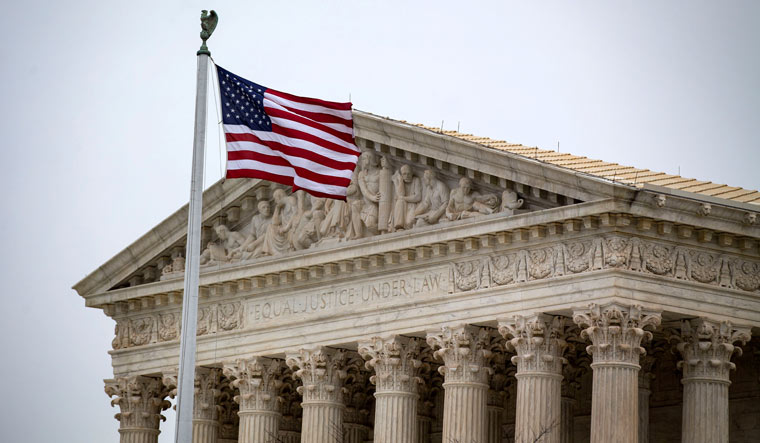The US Supreme Court on Monday said that it can prevent electors from freely deciding on whom to back and force them to support the candidate who won the state’s popular vote. The justices unanimously rejected the idea that electors, who act on behalf of a state in the Electoral College vote that occurs weeks after voters go to polls, can exercise discretion in the candidate they back.
In the 2016 elections, Bret Chiafalo, a candidate who pledged to back Hillary Clinton voted for Colin Powell in order to sideline Trump and was fined USD 1,000 by the state of Washington. Another delegate Michael Baca’s vote got cancelled by Ohio officials after he voted for Ohio Governor John Kasich instead of Clinton to throw Trump off-course.
In the 2016 elections, even though Hillary Clinton was well ahead in the race by 2.9 million popular votes, Trump won the elections that year with 304-277 votes against Clinton due to the Electoral College system.
The decision erases a potential complicating factor in the Electoral College as President Donald Trump will face Democratic candidate Joe Biden on November 3 as he seeks to be re-elected.
According to state officials, faithless electors, or those who use their own discretion while backing a candidate threaten the integrity of American democracy by subverting the will of the electorate and opening the door to corruption. The plaintiffs had argued that the Constitution requires them to exercise independent judgment to prevent unfit candidates from taking office.
“The Constitution’s text and the nation’s history both support allowing a state to enforce an elector’s pledge to support his party’s nominee - and the state voters’ choice - for President,” liberal Justice Elena Kagan wrote on behalf of the court. The winner of a presidential election is determined by securing a majority of electoral votes allotted to each of the 50 states and the District of Columbia, as per the system set out in the US Constitution.


